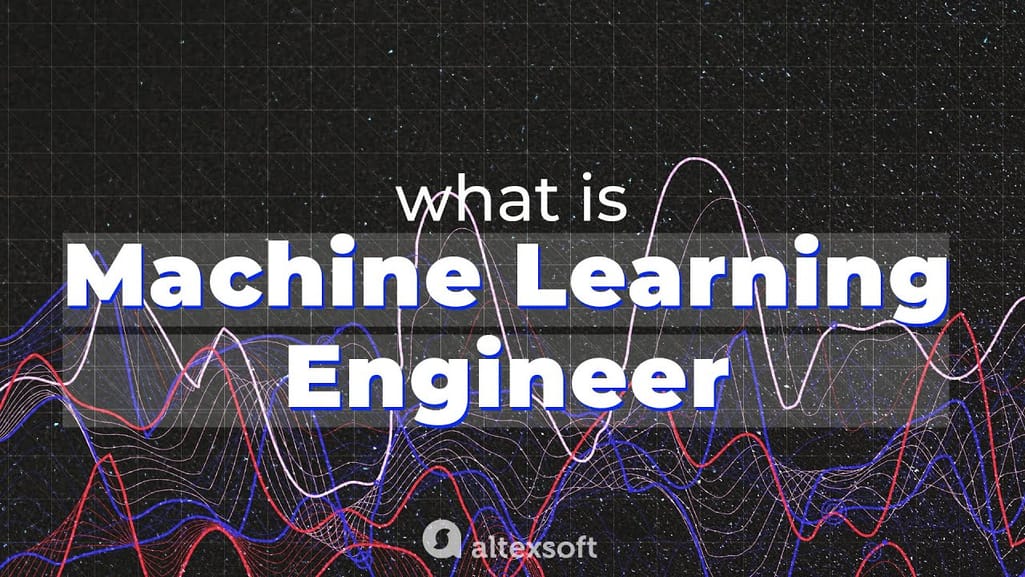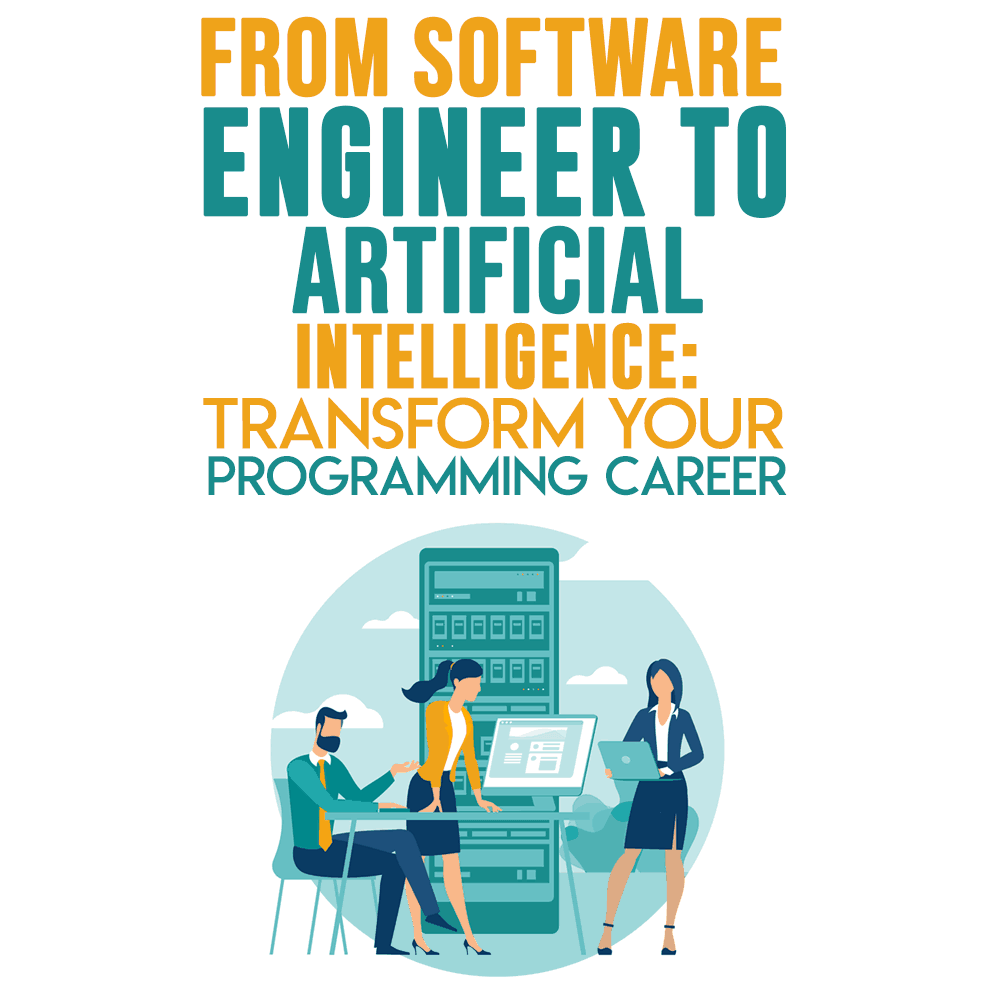All Categories
Featured
Table of Contents
- – Things about Machine Learning Crash Course For...
- – Some Ideas on Computational Machine Learning F...
- – Machine Learning (Ml) & Artificial Intelligen...
- – Llms And Machine Learning For Software Engine...
- – The Basic Principles Of Certificate In Machi...
- – The Machine Learning Devops Engineer Ideas
Unexpectedly I was surrounded by individuals who can address difficult physics inquiries, understood quantum technicians, and can come up with interesting experiments that obtained published in top journals. I fell in with a good team that urged me to discover points at my own pace, and I invested the next 7 years finding out a load of points, the capstone of which was understanding/converting a molecular characteristics loss feature (including those shateringly discovered analytic by-products) from FORTRAN to C++, and writing a gradient descent routine straight out of Mathematical Recipes.

I did a 3 year postdoc with little to no artificial intelligence, simply domain-specific biology things that I didn't discover fascinating, and lastly procured a task as a computer scientist at a national lab. It was a great pivot- I was a concept investigator, indicating I might use for my very own grants, compose documents, etc, but really did not need to instruct courses.
Things about Machine Learning Crash Course For Beginners
I still didn't "obtain" device knowing and wanted to work someplace that did ML. I tried to obtain a job as a SWE at google- experienced the ringer of all the hard questions, and inevitably obtained declined at the last step (thanks, Larry Web page) and went to help a biotech for a year before I finally procured employed at Google throughout the "post-IPO, Google-classic" period, around 2007.
When I reached Google I promptly looked with all the tasks doing ML and discovered that other than advertisements, there actually had not been a whole lot. There was rephil, and SETI, and SmartASS, none of which appeared also remotely like the ML I had an interest in (deep semantic networks). So I went and concentrated on other stuff- finding out the dispersed technology below Borg and Titan, and understanding the google3 pile and production environments, mostly from an SRE perspective.

All that time I would certainly invested on maker discovering and computer infrastructure ... went to writing systems that loaded 80GB hash tables right into memory simply so a mapper could calculate a tiny component of some gradient for some variable. Sadly sibyl was actually a dreadful system and I got started the team for telling the leader properly to do DL was deep semantic networks on high efficiency computing equipment, not mapreduce on economical linux collection machines.
We had the information, the formulas, and the compute, at one time. And even much better, you didn't need to be within google to make use of it (other than the huge data, and that was changing rapidly). I understand enough of the math, and the infra to lastly be an ML Designer.
They are under extreme pressure to obtain results a few percent much better than their partners, and afterwards when published, pivot to the next-next thing. Thats when I came up with among my laws: "The really best ML versions are distilled from postdoc splits". I saw a few people damage down and leave the industry for good simply from working with super-stressful projects where they did magnum opus, yet just reached parity with a competitor.
This has actually been a succesful pivot for me. What is the ethical of this long story? Charlatan disorder drove me to overcome my charlatan disorder, and in doing so, along the road, I learned what I was chasing was not really what made me pleased. I'm far a lot more satisfied puttering concerning using 5-year-old ML technology like item detectors to boost my microscope's capacity to track tardigrades, than I am trying to end up being a well-known scientist who unblocked the difficult issues of biology.
Some Ideas on Computational Machine Learning For Scientists & Engineers You Need To Know

Hello there globe, I am Shadid. I have actually been a Software Designer for the last 8 years. Although I wanted Machine Knowing and AI in college, I never ever had the chance or patience to seek that enthusiasm. Currently, when the ML area expanded significantly in 2023, with the most up to date developments in huge language designs, I have a horrible longing for the roadway not taken.
Scott talks about how he completed a computer scientific research degree just by following MIT curriculums and self researching. I Googled around for self-taught ML Designers.
At this point, I am not sure whether it is feasible to be a self-taught ML engineer. I intend on taking programs from open-source courses available online, such as MIT Open Courseware and Coursera.
Machine Learning (Ml) & Artificial Intelligence (Ai) - Truths
To be clear, my objective here is not to build the following groundbreaking version. I merely desire to see if I can get an interview for a junior-level Artificial intelligence or Data Design task hereafter experiment. This is purely an experiment and I am not trying to transition into a function in ML.

I plan on journaling about it weekly and recording every little thing that I research. An additional disclaimer: I am not going back to square one. As I did my bachelor's degree in Computer Design, I comprehend some of the basics required to pull this off. I have strong history knowledge of single and multivariable calculus, direct algebra, and data, as I took these courses in institution concerning a decade ago.
Llms And Machine Learning For Software Engineers Things To Know Before You Get This
I am going to omit many of these courses. I am mosting likely to concentrate generally on Maker Understanding, Deep knowing, and Transformer Design. For the very first 4 weeks I am mosting likely to concentrate on finishing Maker Learning Expertise from Andrew Ng. The objective is to speed run through these initial 3 programs and obtain a strong understanding of the basics.
Currently that you have actually seen the training course recommendations, here's a quick overview for your knowing maker discovering trip. Initially, we'll touch on the prerequisites for a lot of device learning programs. A lot more sophisticated programs will certainly require the adhering to expertise prior to starting: Straight AlgebraProbabilityCalculusProgrammingThese are the general elements of being able to recognize just how device finding out jobs under the hood.
The very first training course in this listing, Device Discovering by Andrew Ng, consists of refresher courses on a lot of the mathematics you'll need, but it may be challenging to learn equipment knowing and Linear Algebra if you haven't taken Linear Algebra before at the exact same time. If you need to review the math called for, take a look at: I would certainly advise discovering Python given that most of great ML programs make use of Python.
The Basic Principles Of Certificate In Machine Learning
Furthermore, an additional excellent Python resource is , which has lots of cost-free Python lessons in their interactive browser atmosphere. After discovering the requirement essentials, you can begin to really understand how the formulas work. There's a base collection of algorithms in machine learning that everybody ought to know with and have experience using.

The programs noted over have essentially every one of these with some variation. Understanding how these techniques work and when to use them will be important when taking on new tasks. After the basics, some advanced methods to learn would be: EnsemblesBoostingNeural Networks and Deep LearningThis is just a begin, yet these formulas are what you see in a few of one of the most intriguing machine learning services, and they're useful additions to your tool kit.
Knowing device finding out online is difficult and very fulfilling. It is very important to keep in mind that just enjoying videos and taking quizzes doesn't imply you're truly learning the material. You'll find out even more if you have a side project you're working on that utilizes different information and has various other objectives than the training course itself.
Google Scholar is always a great location to begin. Enter key words like "maker understanding" and "Twitter", or whatever else you want, and hit the little "Develop Alert" link on the entrusted to get emails. Make it a weekly behavior to review those alerts, scan through papers to see if their worth reading, and then devote to comprehending what's taking place.
The Machine Learning Devops Engineer Ideas
Maker learning is extremely satisfying and interesting to discover and experiment with, and I wish you discovered a course over that fits your very own trip right into this amazing field. Device knowing makes up one part of Information Science.
Table of Contents
- – Things about Machine Learning Crash Course For...
- – Some Ideas on Computational Machine Learning F...
- – Machine Learning (Ml) & Artificial Intelligen...
- – Llms And Machine Learning For Software Engine...
- – The Basic Principles Of Certificate In Machi...
- – The Machine Learning Devops Engineer Ideas
Latest Posts
The Ultimate Guide To Data Science Interview Preparation
Best Ai & Machine Learning Courses For Faang Interviews
What’s The Faang Hiring Process Like In 2025?
More
Latest Posts
The Ultimate Guide To Data Science Interview Preparation
Best Ai & Machine Learning Courses For Faang Interviews
What’s The Faang Hiring Process Like In 2025?